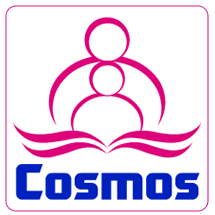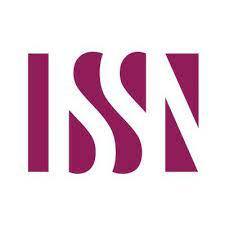Evaluation of Single National Curriculum Implementation in Public and Private Schools at Primary Level in Rawalpindi
Evaluation of Single National Curriculum Implementation
DOI:
https://doi.org/10.5281/ijete.v1i2.29Abstract
An effective educational system promotes social and economic advancement while assisting a nation in reaching its objectives. Phase one of the Single National Curriculum (SNC) has been introduced in Pakistani public and private primary schools. Through the use of a single curriculum, all students in the nation are to receive an education that is standardized. It was also believed that this would lessen inequality and fragmentation. This study looks at the advantages of SNC in both public and private schools as well as the necessary preparation. This study looked at the application of SNC in elementary public and private schools in Rawalpindi, Punjab, as well as the opinions of the teachers regarding its efficacy and implementation. In this investigation, casual comparability was employed. Using convenient sampling, the researcher selected 50 schools in the Tehsil Kahuta, District Rawalpindi to collect quantitative data. Using quantitative data, the researcher compared the design, execution, and descriptive and inferential statistical methods (mean, standard deviation, and t-test of independent samples).
Downloads
References
Ahmad, S., Sultana, N., & Jamil, S. (2021). The Reliability and Validity Study of the Scale Measuring High School Students’ Attitude towards Biology: Using Factor Analysis. Journal of Reliability and Statistical Studies, 285–310-285–310.
Ahmed, B. (2020). Will ‘single national curriculum’be able to end systematic discrimination against religious minorities in Pakistan?
Amirali, M., & Halai, A. (2021). Teachers’ perceptions about mathematics in a socio-religious context: A case from Pakistan. EURASIA Journal of Mathematics, Science and Technology Education, 17(12), 1.
Bari, F. (2021). Pakistan’s Education Reform Test. Current History, 120(825), 133 139.
Barnes, D. (2018). Practical curriculum study: Routledge.
Bashir, R., Yasmin, M., & Ahmad, S. S. (2021). Classroom Implementation of National Curriculum, through English Textbook at High School in Pakistan. Ilkogretim Online, 20(4).
Comparative Education, 24(1).
Durrani, N., & Nawani, D. (2020). Knowledge and curriculum landscapes in South Asia: An introduction. Handbook of Education Systems in South Asia, 1-31.
ESL Single National Curriculum (SNC) in Pakistani Schools. Single National Curriculum at School Level in Pakistan: Expected Challenges, Merits and Demerits. Pjaee, 19 (3) (2022) 65
Grade 5th Textbooks of Single National Curriculum (SNC) in Pakistan. Pakistan Journal of Humanities and Social Sciences, 10(1), 291-297.
Irfan, H. (2021). Insightful Perspectives about Effective Implementation of
Jabeen, S. (2020). Language planning and policy, and the medium of instruction in the multilingual Pakistan: a void to be filled. International Journal of Multilingualism, 1-18.
Jahanzaib, M., Fatima, G., & e Nayab, D. (2021). Review of Single National Curriculum with Perspective of the Education of Children with Visual Impairment at Primary Level in Punjab Pakistan. Journal of Business and Social Review in Emerging Economies, 7(3), 547-560.
Jahanzaib, M., Fatima, G., & e Nayab, D. (2022). Review of Primary Level Curriculum for Students having Vision Related Challenges Formulated by Punjab Textbook Board, Lahore. Journal of Business and Social Review in Emerging Economies, 8(1), 165-174.
Kausar, S. W. A. (2020). A Critical Analysis of Different Educational Systems on Students’ Outcome: A Case Study of Pakistan. Journal of Contemporary Studies, 9(II), 89- 105.
Khan, M. R., & Nadeem, H. A. (2020). Do The Textbooks Reflect the Curriculum? A Comparative Analysis of Social Studies Textbooks Taught in Public and Private Sector in Pakistan.
Ku, E., Lee, B. J., Wei, J., & Weir, M. R. (2019). Hypertension in CKD: core curriculum 2019. American Journal of Kidney Diseases, 74(1), 120- 131. Panjwani, F., & Chaudhary, C. H. (2022). Towards a rights-based multireligious curriculum? The case of Pakistan. Human Rights Education Review.
National Curriculum (SNC) at Primary Level: Teachers' Expectations and Concerns. Jahan-e-Tahqeeq, 4(4), 161-168.
Qazi, H. (2020). National Identity in a Postcolonial Society: A Foucauldian Discourse Analysis of Pakistan’s National Curriculum Textbooks and their Social Practices in Schools for Shaping Students’ National Belonging. University of Leicester.
Rubab, U., Yousuf, M. I., & Dahar, M. A. (2021). Analysis of Peace Education in Social Studies Curriculum at Elementary Level. Journal of Educational Sciences, 8(1), 60-78.
Sinnema, C., Nieveen, N., & Priestley, M. (2020). Successful futures, successful curriculum: What can Wales learn from international curriculum reforms? The Curriculum Journal, 31(2), 181-201.
Smith, L. B., Jayaraman, S., Clerkin, E., & Yu, C. (2018). The developing infant creates a curriculum for statistical learning. Trends in cognitive sciences, 22(4), 325 336.
Tahir, I. (2022). Decolonizing Madrassa Reform in Pakistan. Current Issues in curriculum, 11(3), 47-58.
Tayyab, M., Umer, S., & Sajid, A. (2022). Decoding Religious Contents of
Zaman, M. S., Saleem, K., & Ali, S. (2021). Implementation of the Single National Curriculum in Pakistan. Journal of Curriculum Development, 14(4), 113-124.
Downloads
Published
How to Cite
Issue
Section
License
This is an Open Access article distributed under the term of the Creative Commons Attribution 4.0 International licenses permitting all use, distribution and reproduction in any medium provided the work is properly cited.

























